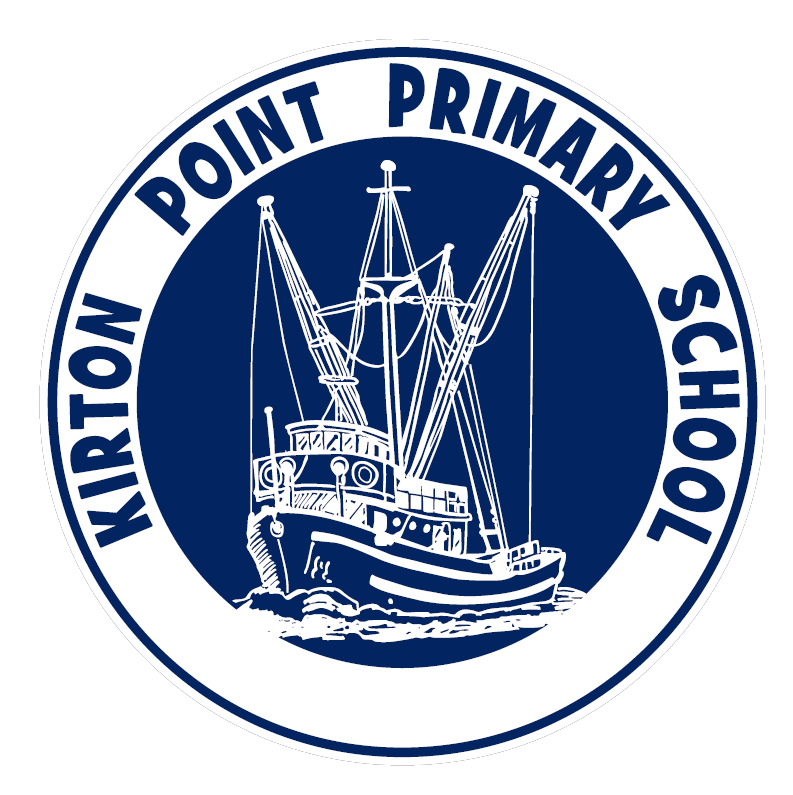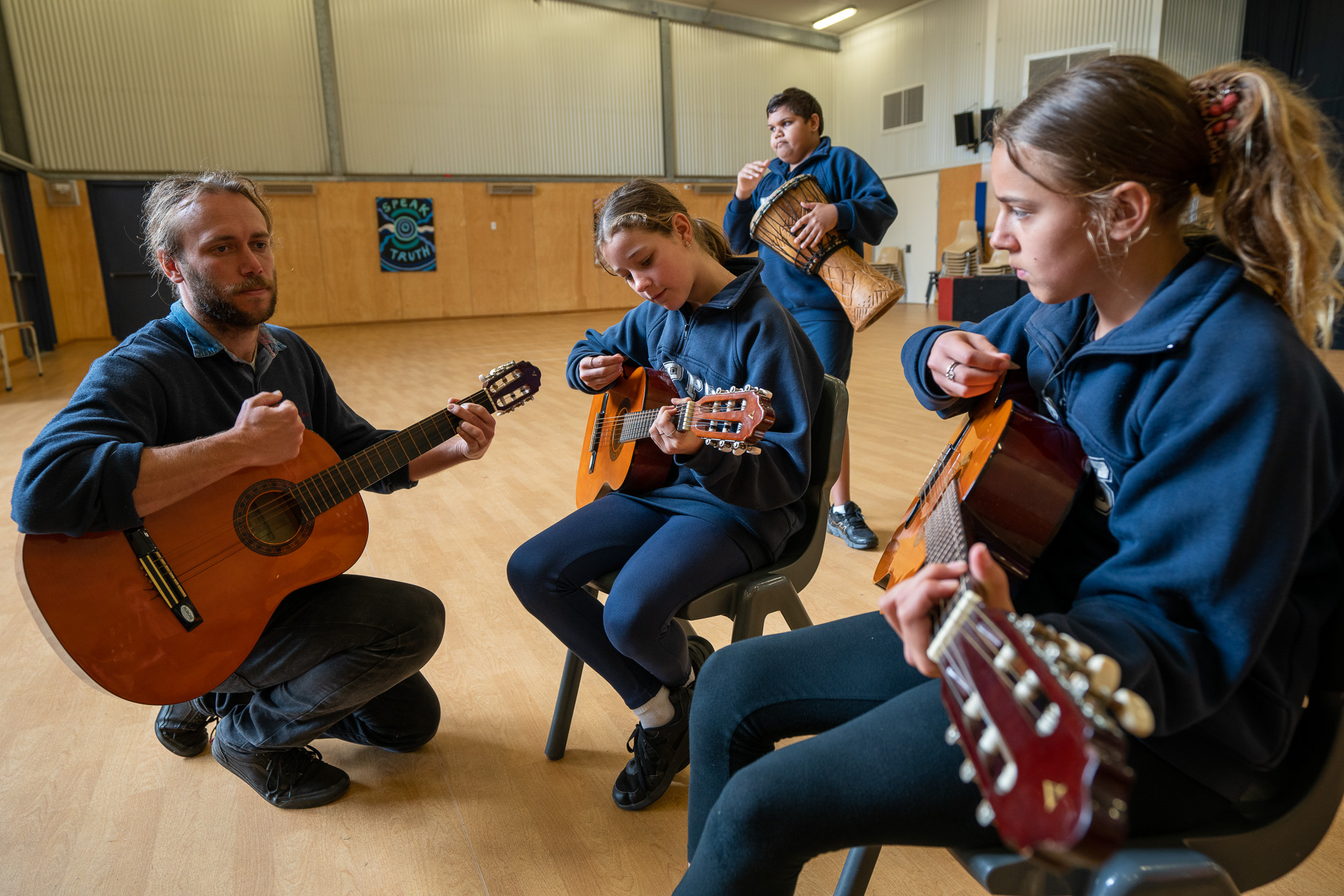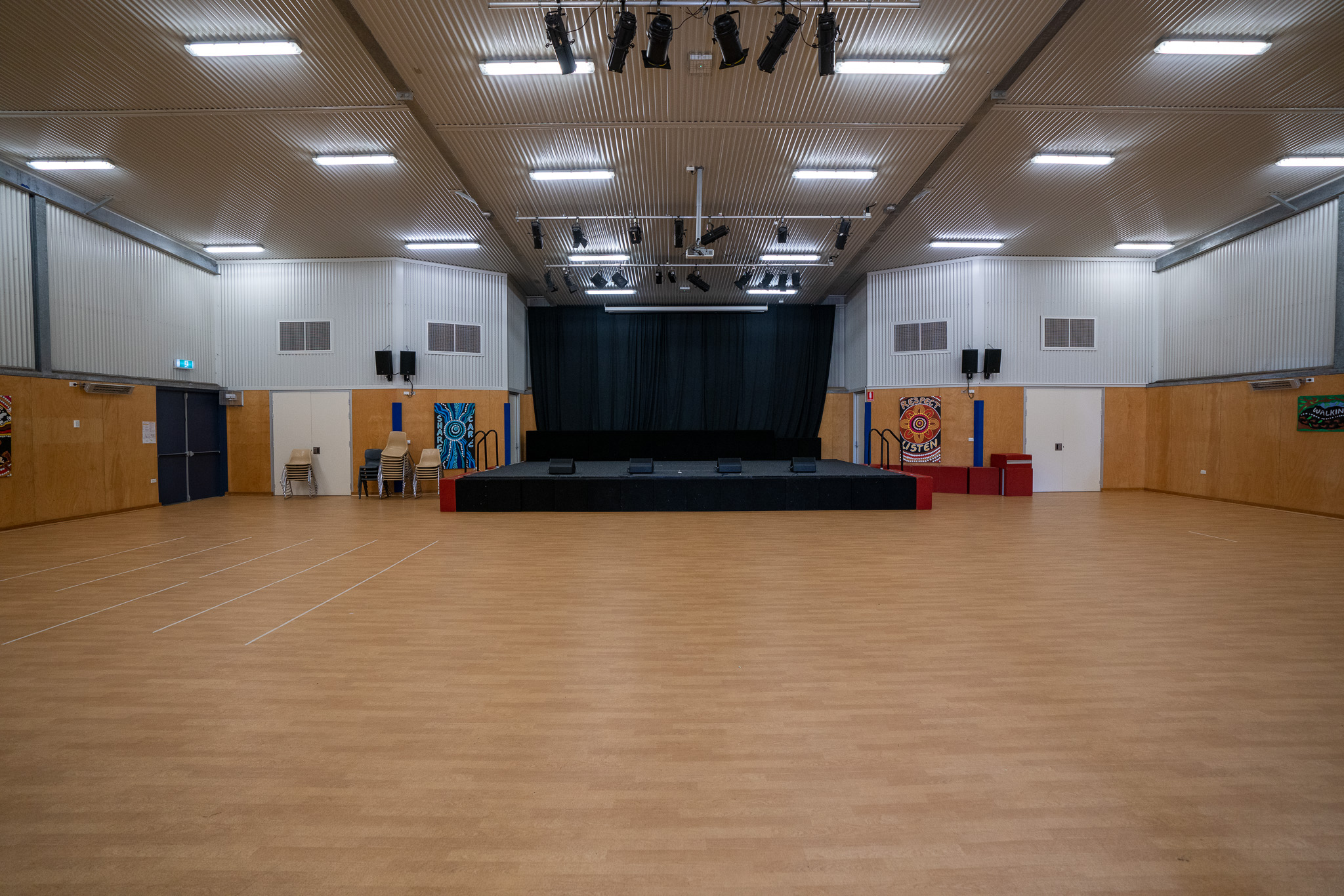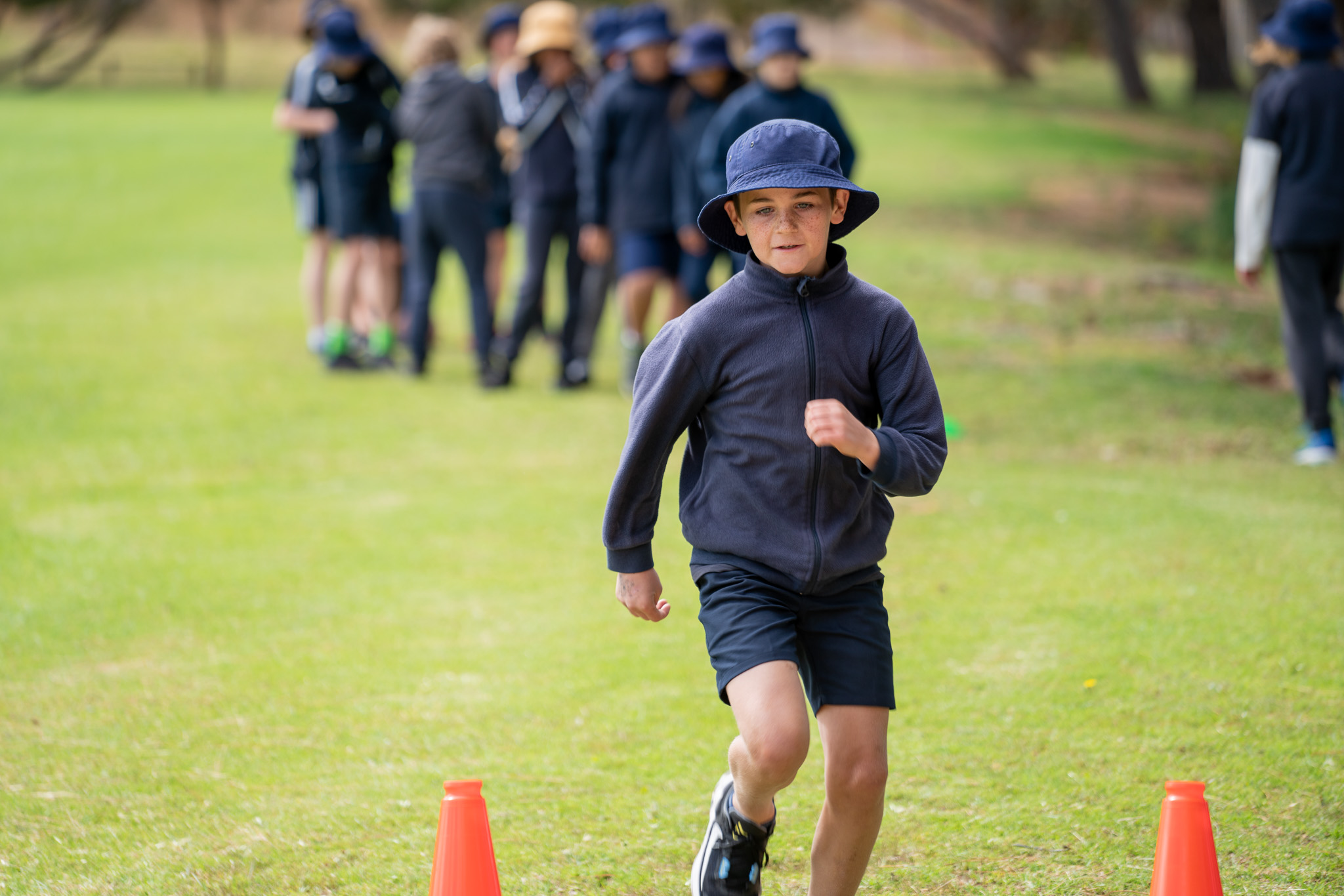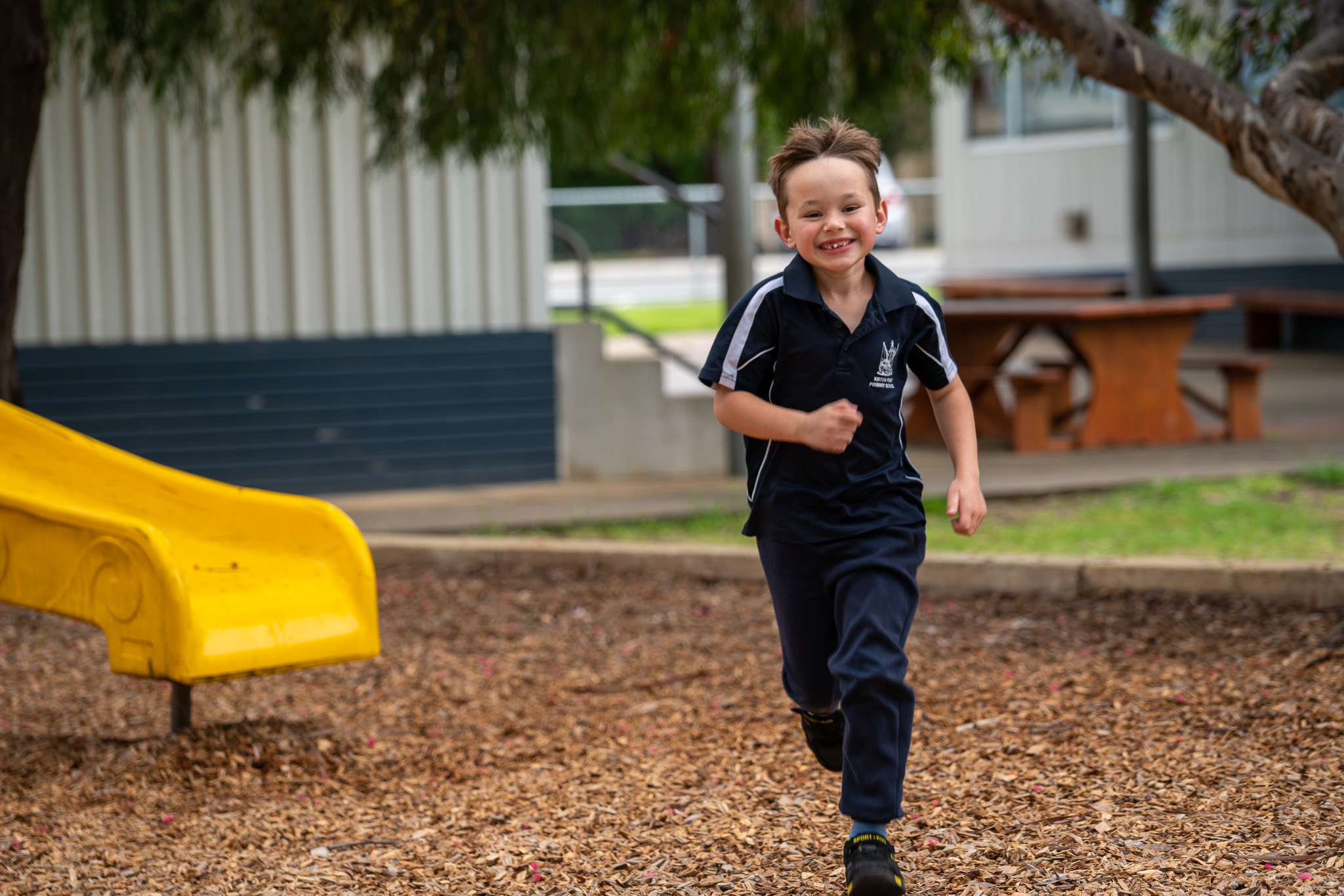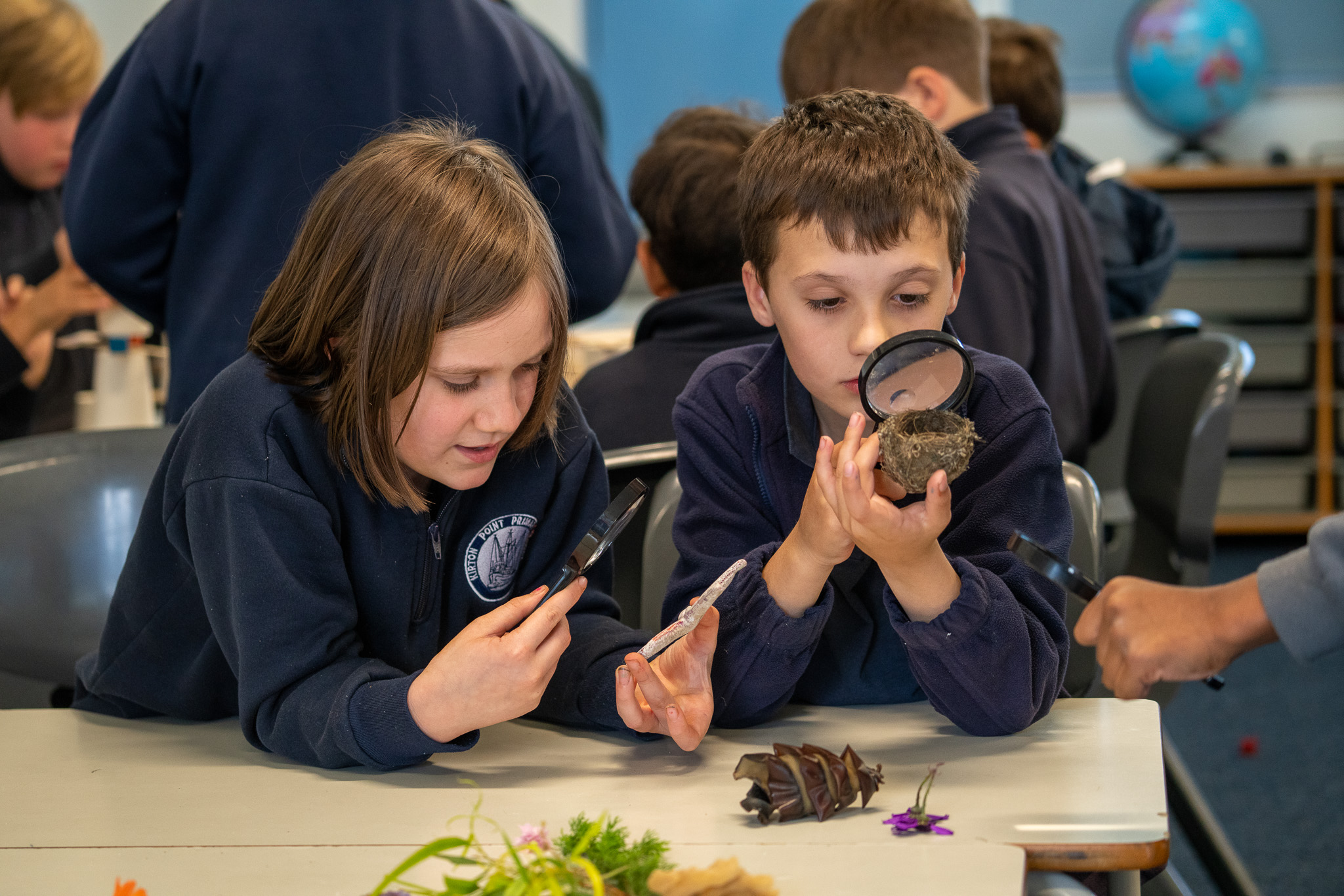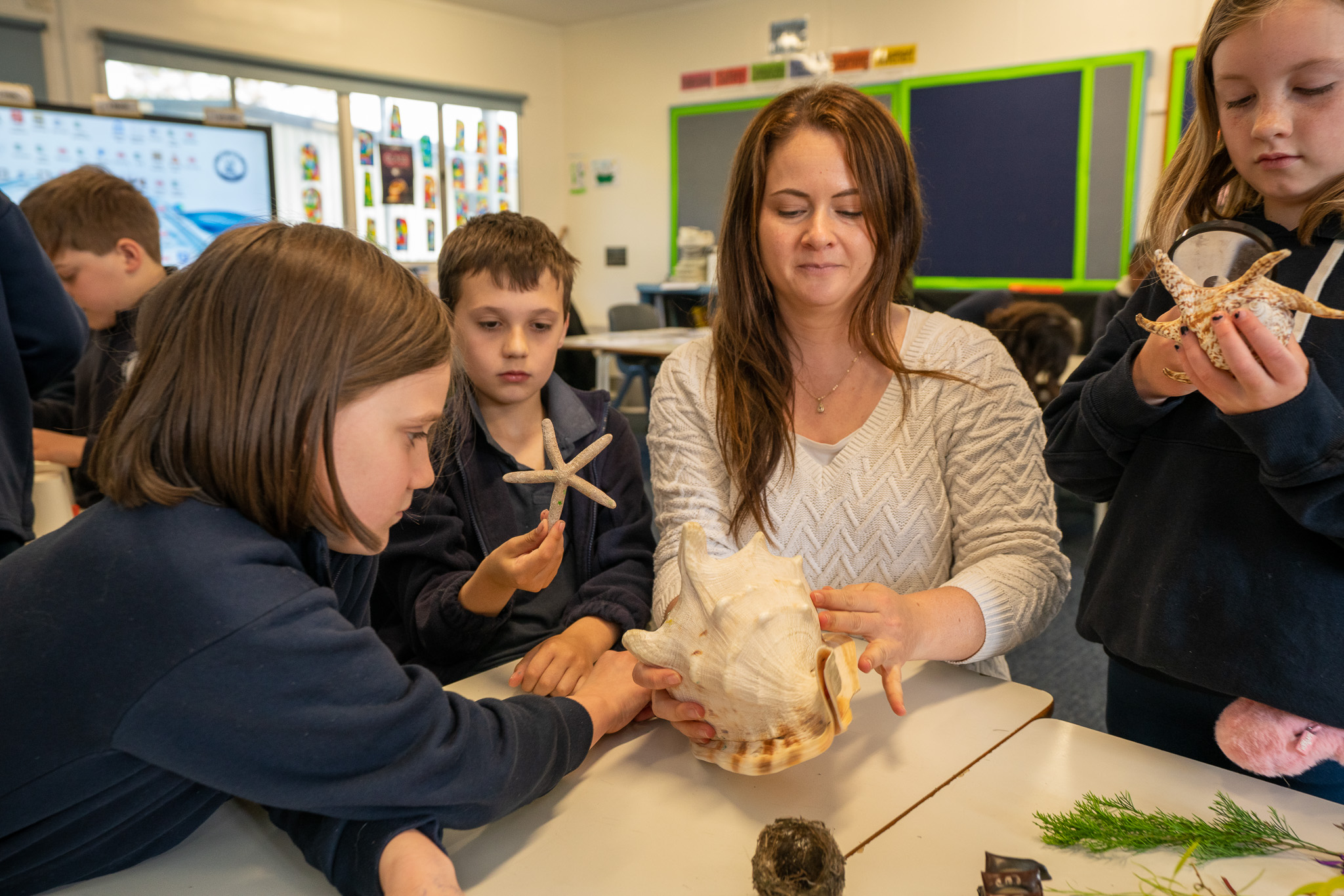Special Programs
The Arts
The arts have the capacity to engage, inspire and enrich all students, exciting the imagination and encouraging them to reach their creative and expressive potential. The five arts subjects in the Australian Curriculum provide opportunities for students to learn how to create, design, represent, communicate and share their imagined and conceptual ideas, emotions, observations and experiences. The Arts includes Drama, Music, Visual Arts, Dance and Media Arts.
The Arts, with an emphasis on Drama, has been a specialist subject at Kirton Point Primary since 2006. Music, Visual Arts, Dance and Media Arts are integrated into the Drama lessons. The Arts Hall is equipped with a stage and up to date lighting and sound equipment that support students to showcase their work.
Drama involves role-play, improvisation, devising, acting, interpreting texts, writing scripts, directing, designing, creating sets and costumes, rehearsing, presenting and performing. Students learn to be an audience member by enjoying, reflecting, analysing, appreciating and evaluating their own and others’ drama works. Students learn skills and processes and develop their ability to work independently and collaboratively as they create, present and perform drama.
Students learn about design, how to integrate technologies to enhance and further their drama works and use their learning in Drama to support learning in other Arts subjects and learning areas. Students at Kirton Point have designed back projections for their performances and chosen and mixed sound effects and music to accompany their performances.
We have special events at Kirton Point that allowing students to showcase their skills. These range from a Teddy Bear’s Picnic day, Pirate day, inter-school and intra-school Theatre Sports competitions, Circus Skills program, Kirton Point’s Got Talent Quest and participation in the annual Tunarama Parade.
Physical Education/Health
Physical Education (PE) lessons revolve around full participation in physical activity. Students are exposed to a wide range of sports and skills which support an active and healthy lifestyle into the future.
Healthy lifestyle means a way of life that enables people to be both physically and emotionally healthy. It includes positive relationships, exercise, good nutrition and adequate rest. A healthy lifestyle provides people with more energy, increased self esteem and confidence and reduces the chance of mental illness and chronic disease.
JUNIOR PRIMARY
In the Junior Primary years, PE lessons focus on gross motor skill development and spatial awareness. Students play a range of games and movement activities which develop their skipping, kicking, hitting, throwing, batting and catching skills as well as team work capacity.
UPPER PRIMARY
Students in the Primary years focus on developing whole group game skills and tactics and particularly enjoy the ball sports. European handball, volleyball, tennis, basketball, netball, football, soccer, cricket, softball and baseball are some of the favourites. We concentrate on developing catching and throwing skills, kicking and batting skills as well as goal shooting.
All students at Kirton Point are engaged regularly in group oriented games to help develop team skills and promote working together as a team.
PREMIER’S BE ACTIVE CHALLENGE
Students participate in the Premier’s Be Active Challenge every year. This involves students in physical activity for 60 minutes, 5 days a week for a period of 4 weeks. A record must be kept in a log book of the physical activities undertaken by the students. Successful students receive medals for their efforts which increase in value each year.
WALK SAFELY TO SCHOOL DAY
Walk safely to school day is held every year in May. We usually have a great turn out and children enjoy a delicious, healthy breakfast once they arrive at school.
By simply walking to school, children can easily achieve the 60 minutes of exercise. Healthy, fit and active children live better and learn better, and grow up to be more healthy active adults.
SAPSASA
Kirton Point Primary School is actively involved in the SAPSASA Program. In the past few years, numerous Kirton Point Primary students have been selected to participate in SAPSASA sports including netball, football, swimming, hockey, softball, cricket, tennis and golf. Students join the Lower Eyre Peninsula team and spend a week in Adelaide competing against teams from other parts.
SPORTS DAY
In term 4 each year, students engage in the annual sports day. Students belong to a house team: Blue – Hopkins; Red – Thistle; Green – Taylor and Yellow – Lewis. There are competitive events such as relays and sprints as well as collaborative events such as egg and spoon, sack race, ball games and obstacle race. Students earn points for their team which is led by House Captains. Team members vote for house captains prior to sports day. House Captains are responsible for leading their team in house chants, assisting with organizing sports equipment and practice of events, encouraging students, and helping out in any way possible.
SPORT
We are fortunate to have access to many different school and community sporting facilities including the tennis courts, hockey fields, netball and basketball courts, football and soccer/softball ovals. Children may have the opportunity to play in school-managed or community-managed sports. Many students play sports such as football, netball, hockey, basketball, tennis, swimming and yachting through direct involvement in some of the many sporting clubs in Port Lincoln.
Internally organised, after-school-hours sporting activities such as the Sporting Schools program are, at times, available.
SWIMMING/AQUATICS
Junior and Middle Primary students have the opportunity to receive swimming instruction at the Leisure Centre for 5 or 10 sessions per year. Children with disabilities may receive more.
Upper Primary students have an opportunity to participate in 8 sessions of Aquatics per year, usually offered on one day at Coffin Bay.
The cost of swimming/aquatics is not included in school fees.
LUNCHTIME ELECTIVES
Student reps work with the school counsellors and the Physical Education teacher to provide active games and sports for students to play at various recess and lunch times. Students are taught to play in teams as well as umpire.
HEALTH AND NUTRITION
CRUNCH & SIP
Kirton Point Primary implements Crunch&Sip strategy which involves having a set break to eat fruit or salad vegetables and drink water in the classroom. Students re-fuel with fruit or vegetables during the morning or afternoon, assisting physical and mental performance and concentration in the classroom.
Crunch&Sip encourages snacking on fruit and vegetables and drinking water and creates a positive role model of healthy eating in the classroom. Drinking water is good for you as it prevents dehydration and enhances students ability to concentrate. For more information see:
http://www.crunchandsip.com.au/why-crunchsip/common-questions/#11
Science
The Australian Curriculum guides Science teaching and learning. There are 3 strands in the Science curriculum – Science Understanding, Science as a Human Endeavour and Science Inquiry Skills. These strands are interrelated. Science Understanding incorporates Physical, Chemical, Earth & Space and Biological Science. Science as a Human Endeavour explores the nature and development of science and its use and influence on our world. Science Inquiry Skills involve questioning, predicting, planning, conducting, processing and analysing information.
Kirton Point students are fortunate to have a specialist Science program which is guided by the work of Martin Westwell, Scientist in Residence. Teaching students to notice or observe the world around them, think about what they see and question to further their investigations is of high focus in the program. Tasks are transformed so that students are challenged to find many solutions to problems and think critically and creatively. Questions are of high priority such as:
What do you notice?
What do you think?
What questions do you have?
What do you predict?
